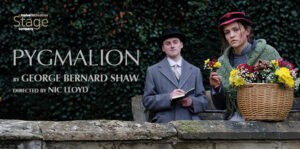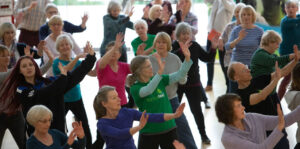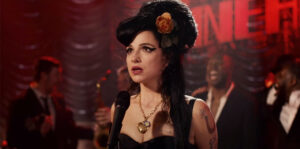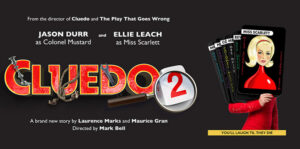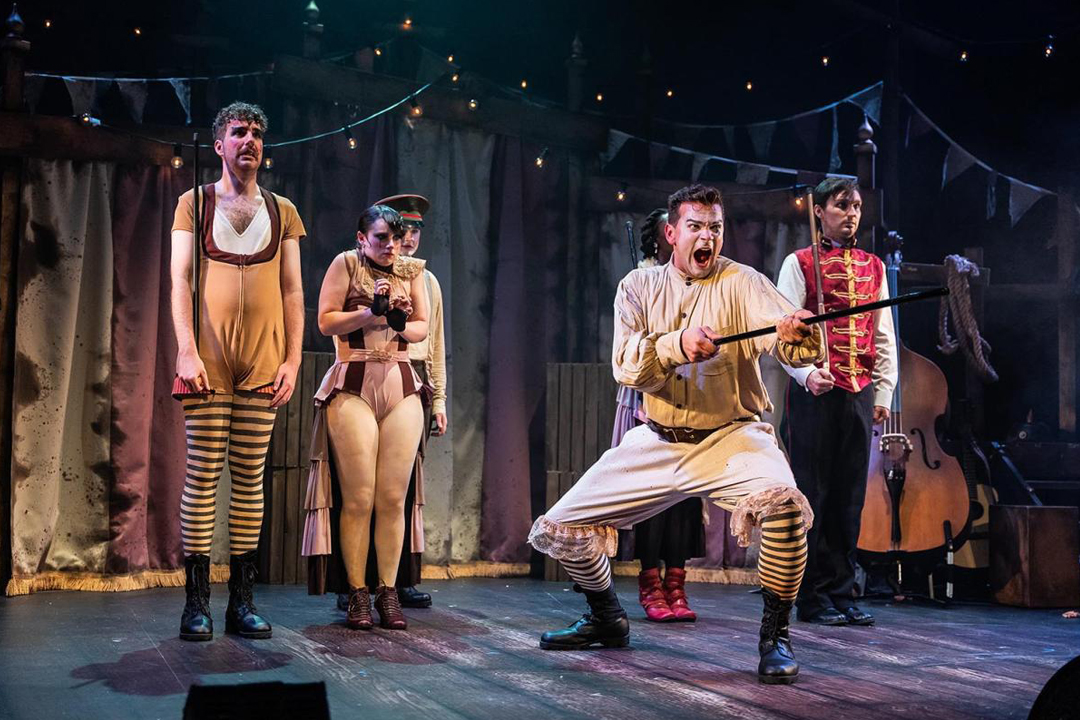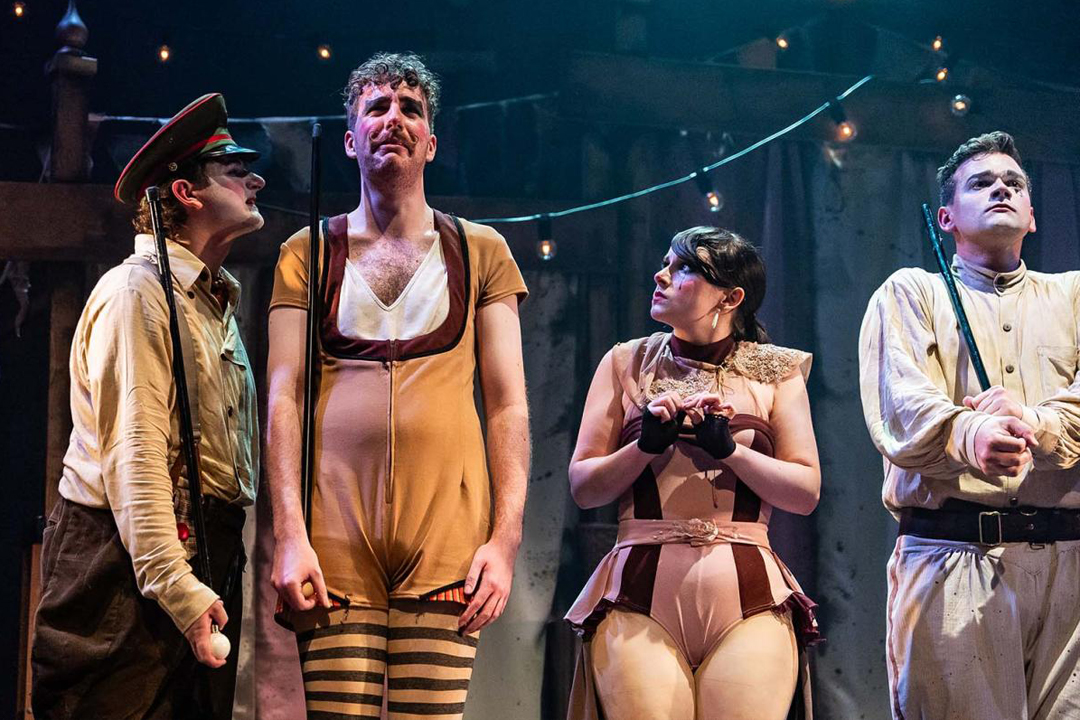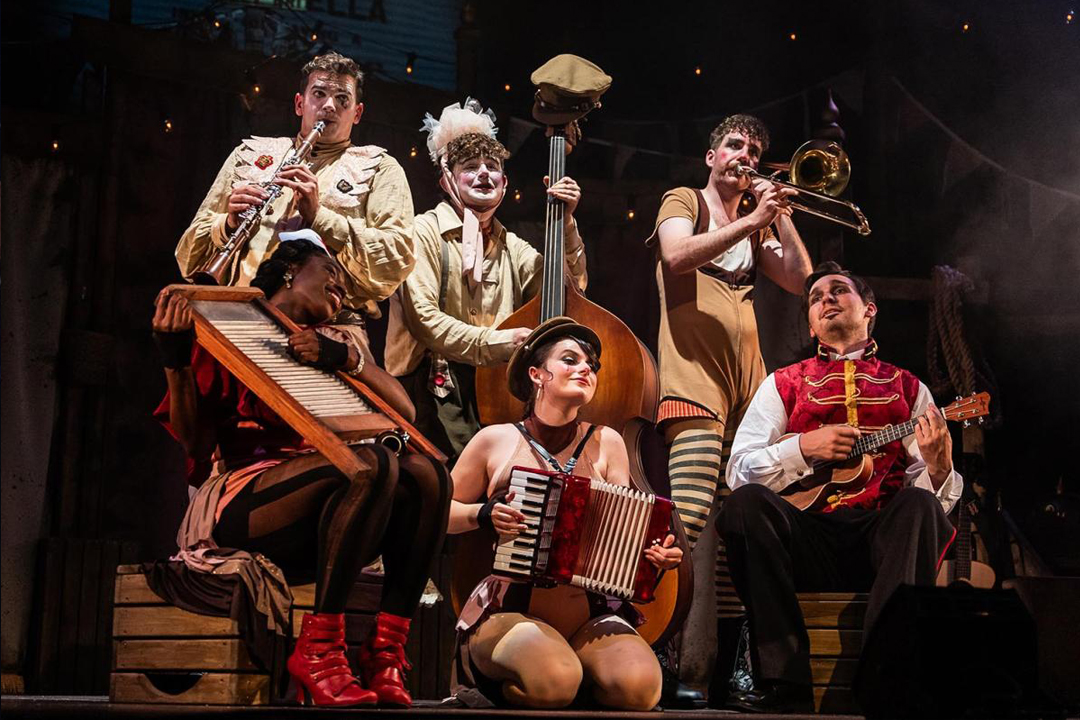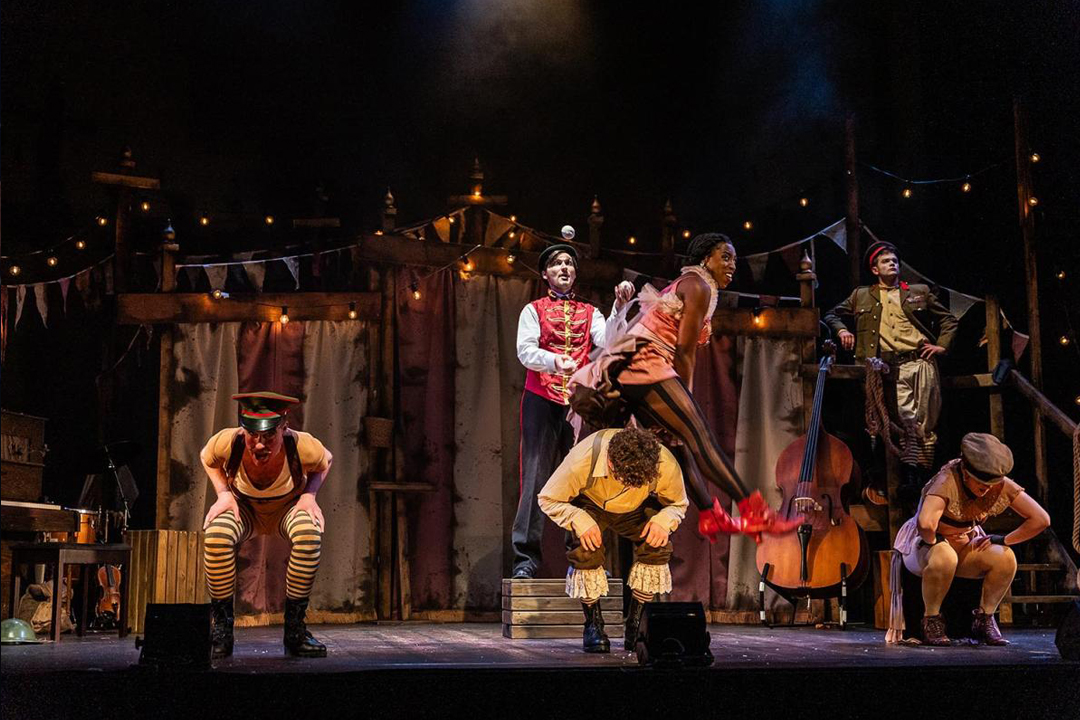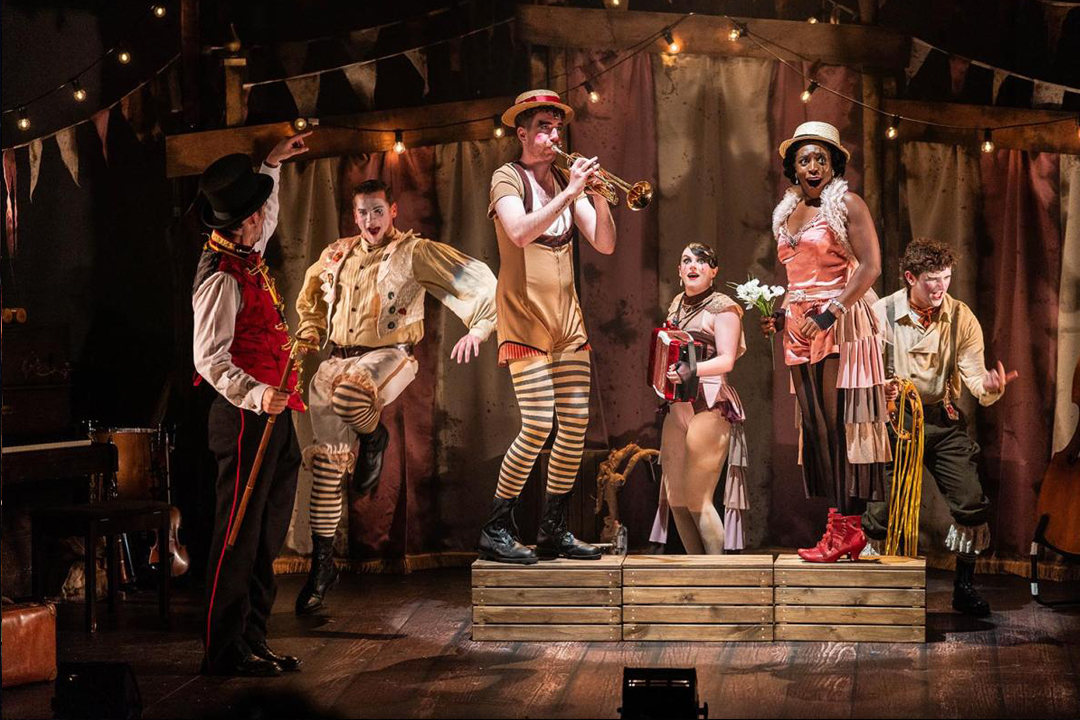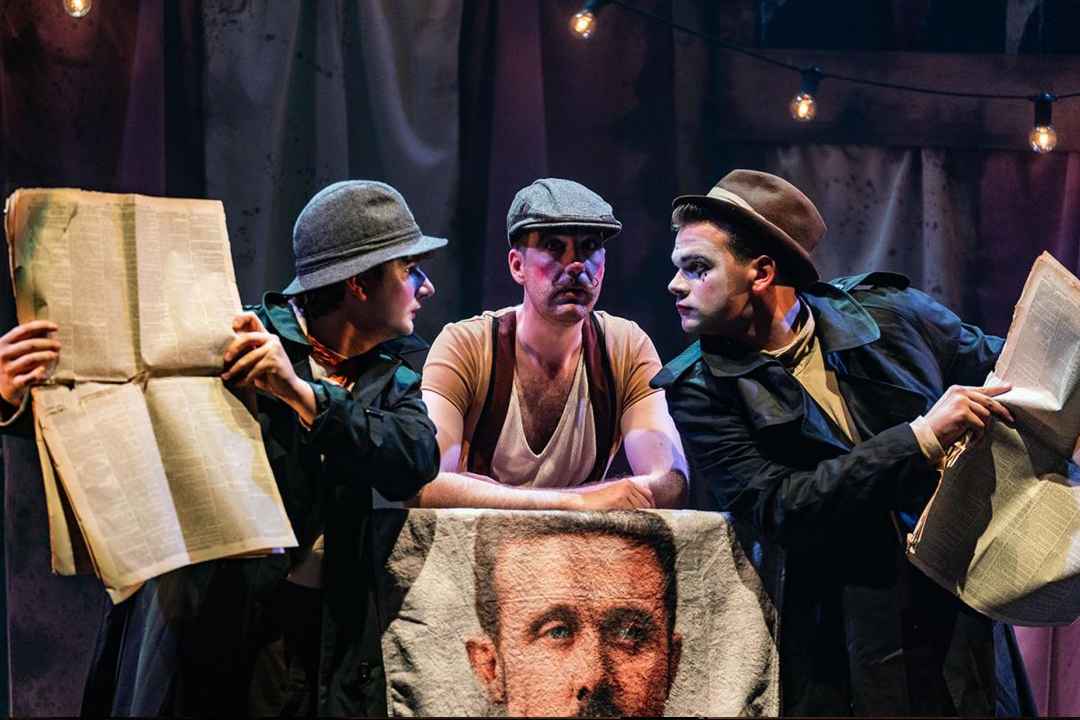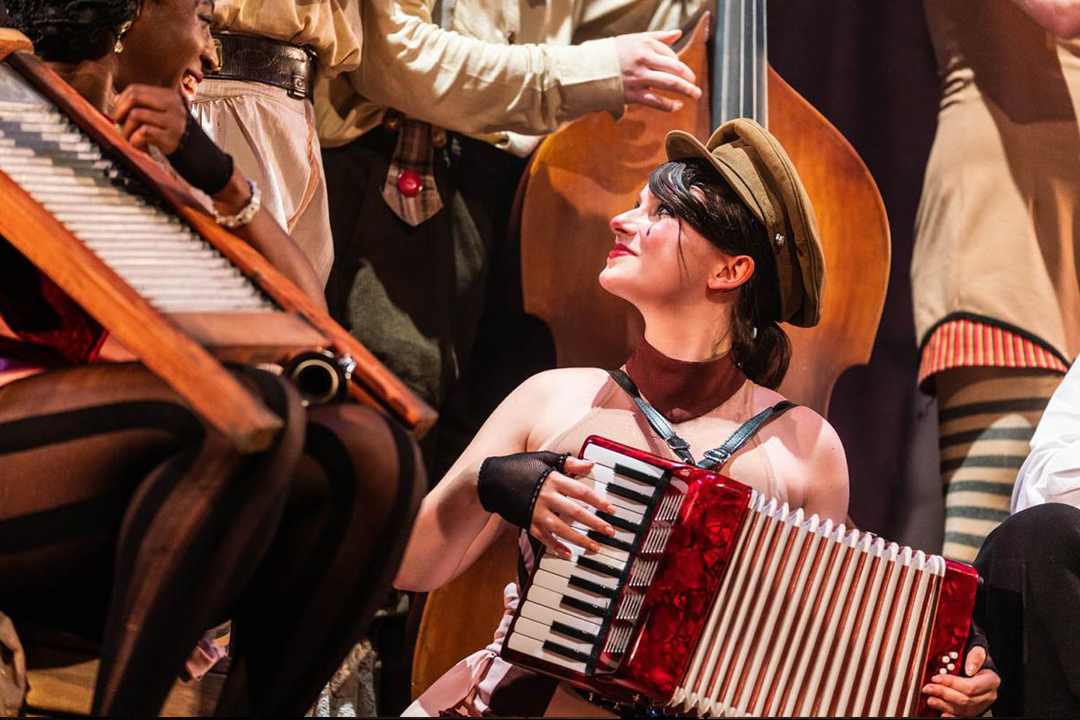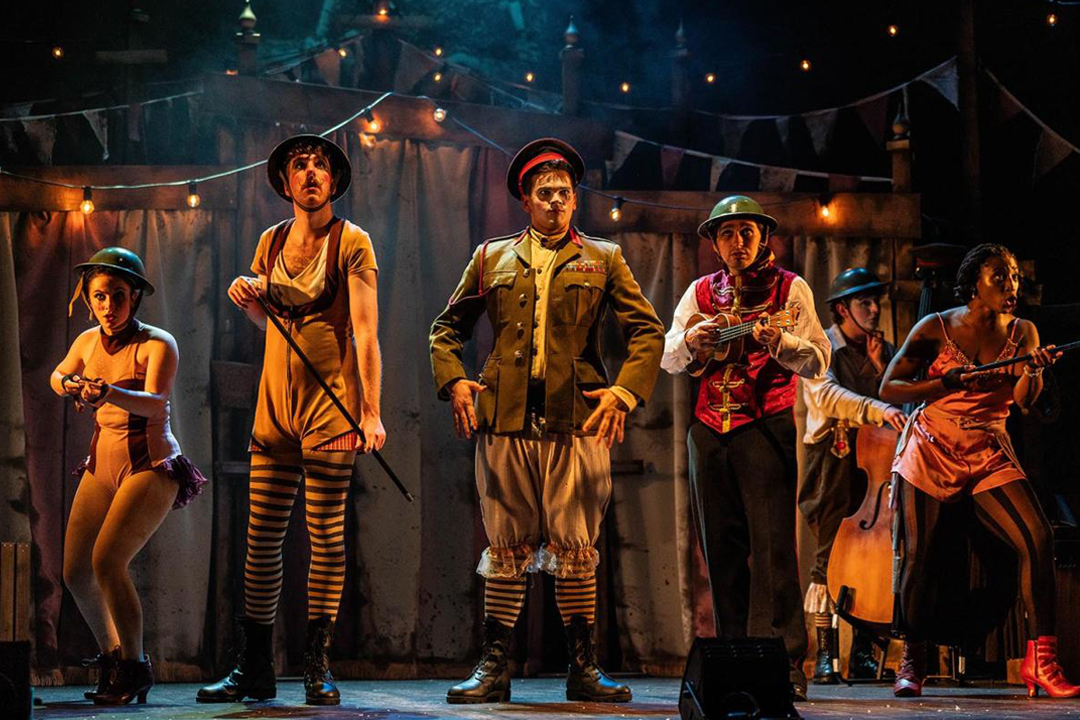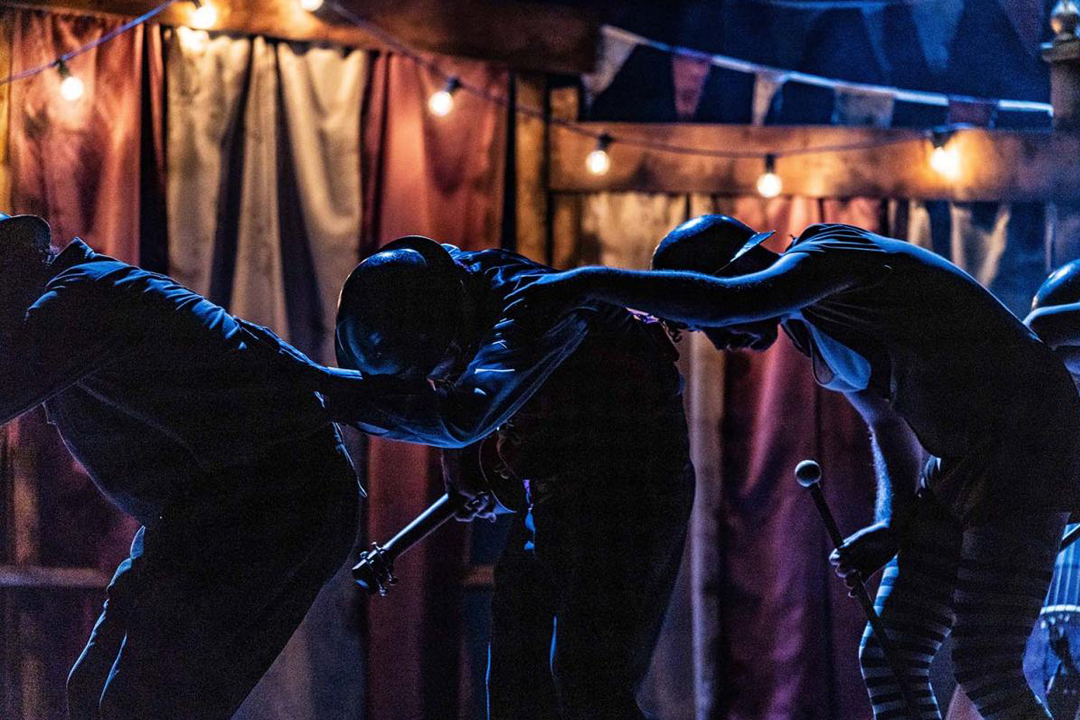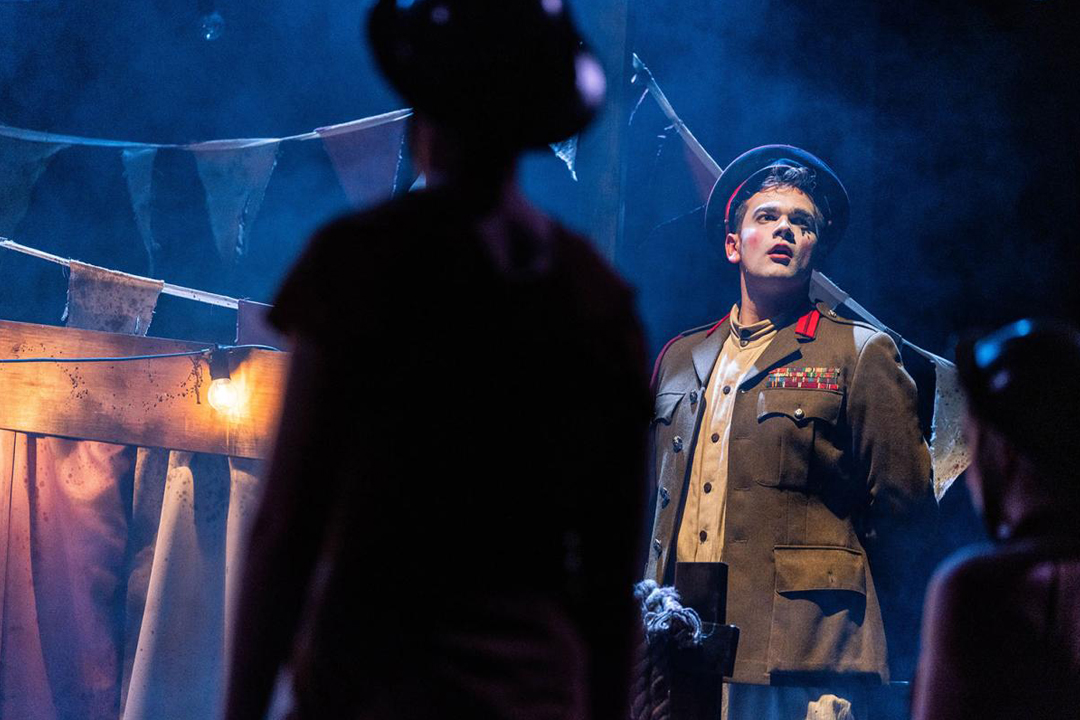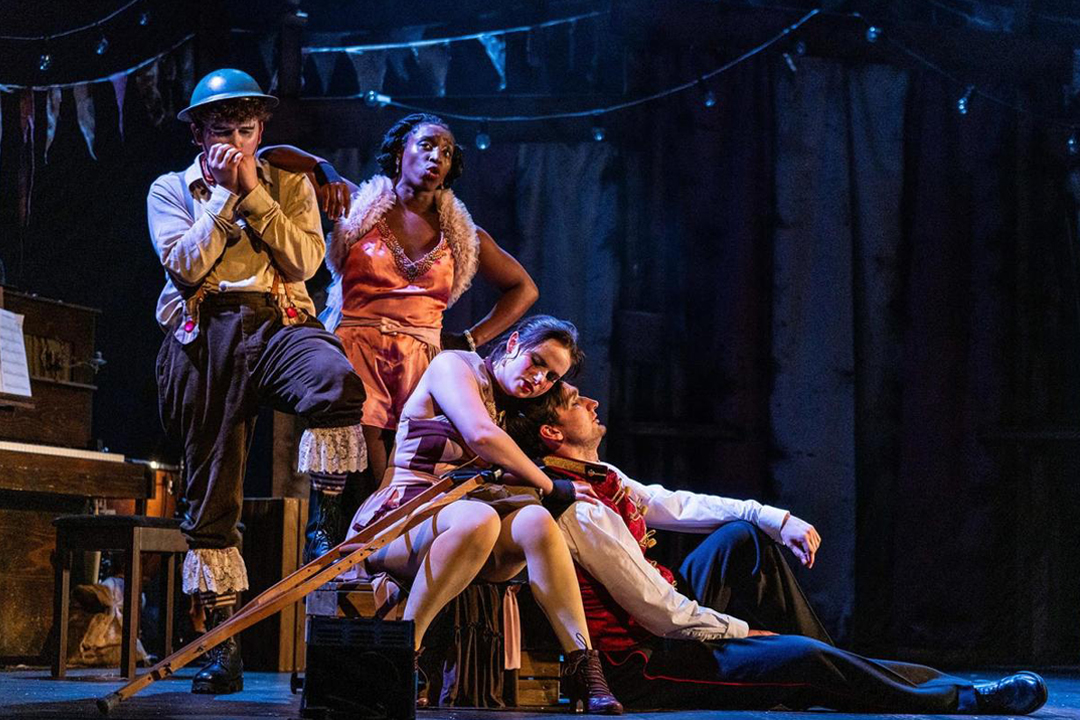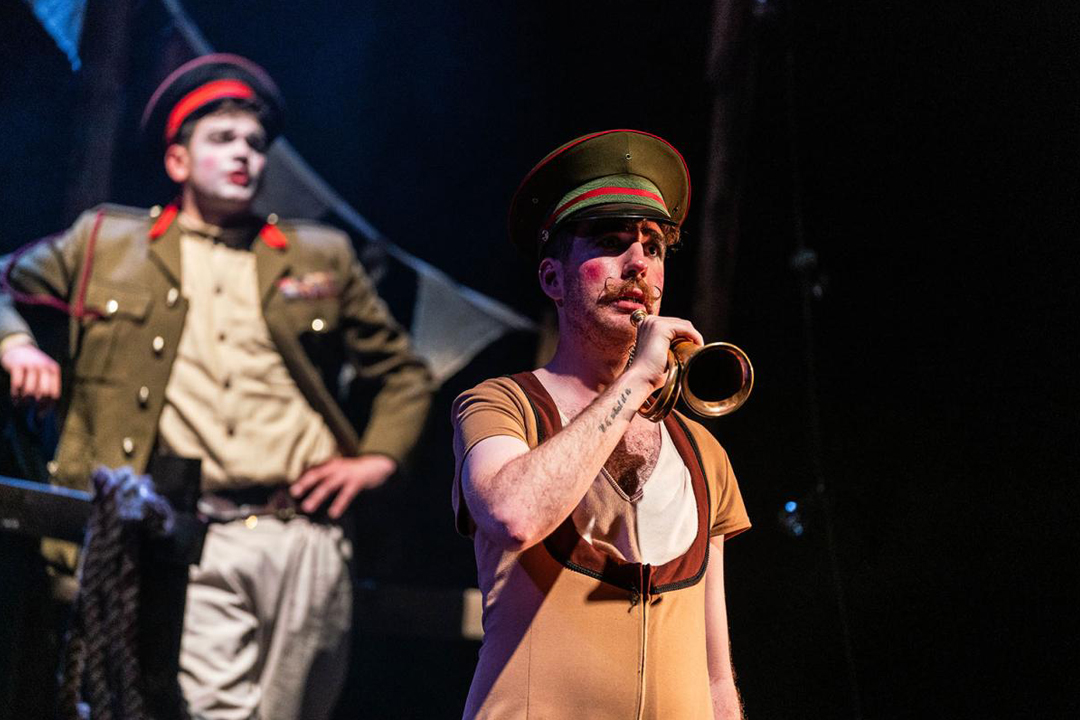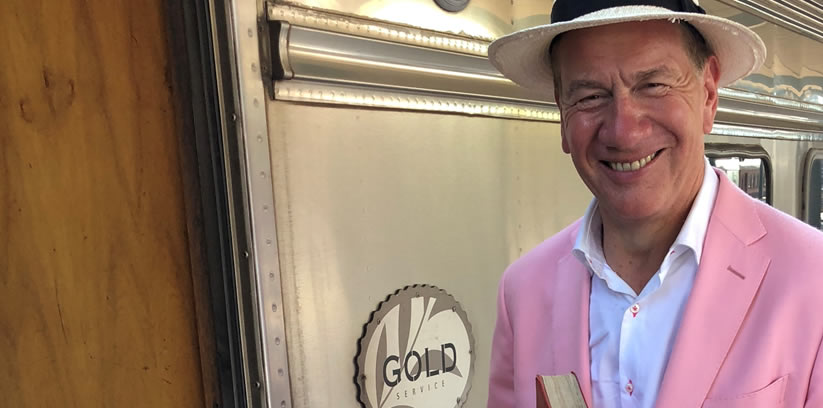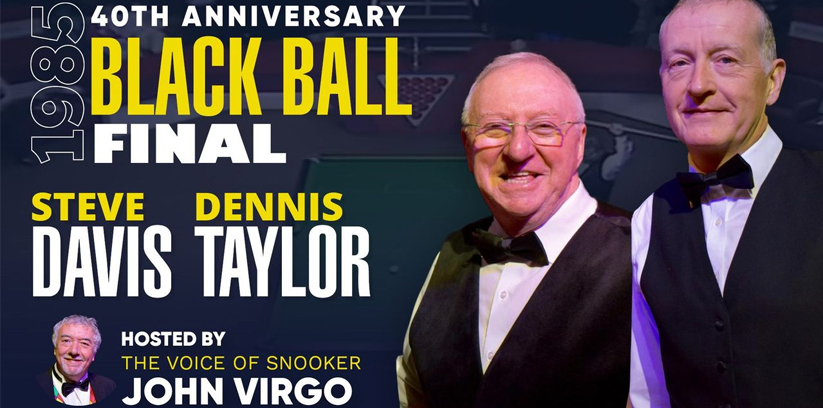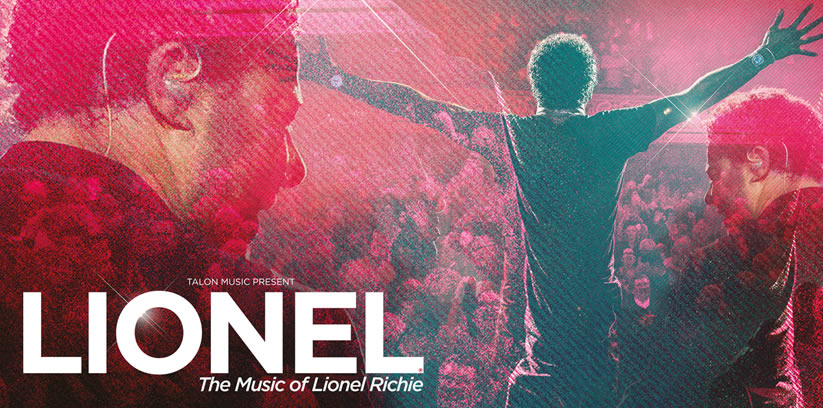
Coming Soon
Event Calendar
| M | T | W | T | F | S | S |
|---|---|---|---|---|---|---|
Pygmalion
Io Capitano (15)
Summer Term ’24: Parents & Wobblers (Monday)
Summer Term ’24: Chance to Dance
Summer Term ’24: Chance to Dance Flow
Event Search
- This event has passed.
Oh What A Lovely War
March 12th - March 16th
Event Navigation
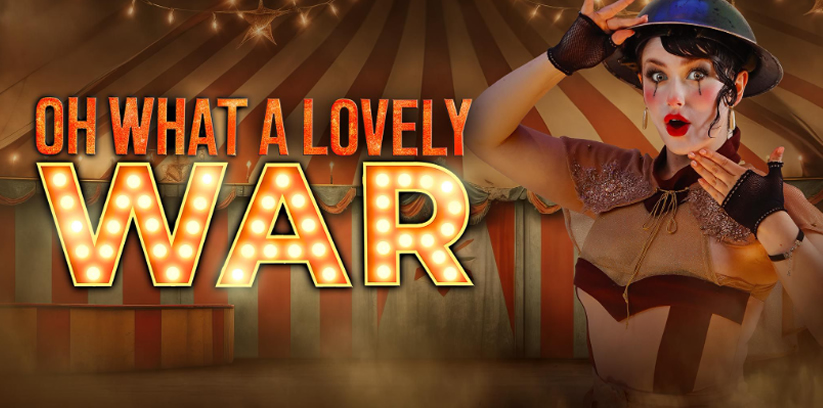
Blackeyed Theatre in association with South Hill Park Arts Centre
presents the 60th anniversary tour of Joan Littlewood’s Musical Entertainment
Oh What A Lovely War
A cornerstone of modern musical theatre and one of the very greatest stage satires, Oh What A Lovely War is an extraordinary theatrical journey bringing to life the folly, farce and tragedy of the First World War. Wildly satirical, visually stunning and deeply moving, it’s the musical that revolutionised modern theatre; an exhilarating, no-holds-barred assault on the military incompetence and inconceivable disregard for human life the First World War has come to represent.
Packed with timeless songs, razor-sharp satire and high jinks, Oh What A Lovely War is a hilarious, heart-breaking snapshot of life for those caught in the crossfire of conflict, a unanimous voice from the trenches and a timely warning from the theatre of war itself. Now, more than ever, it holds a mirror up to the world and speaks to us all.
“A splendid revival that does the original production proud” Brian Murphy, from the cast of the original 1963 production of Oh What A Lovely War
“Magnificent … Extraordinary … As haunting as it is harrowing … Astonishing power … Any assumption that Oh ! What a Lovely War is a period piece is shot to shrapnel. Forty years on, we need Littlewood’s vision more than ever. Blackeyed Theatre restore it to us with astonishing power. Catch it if you can” The Stage
“Fast, energetic and immaculately choreographed. Joan Littlewood would have been delighted by this production … A remarkable evening” Hexham Courant
Running time: 2 hours 5 minutes (including interval)
Photo credit: Clive Elkington
Suitable for age 11 upwards

ACCESS PERFORMANCE:
The performance on Wednesday 13th March at 2.30pm will be Audio Described.
There will also be a touch tour prior to this performance at 12.30pm.
Advanced booking is essential. Please contact the Box Office on 01684 892277 to book, or contact Bridget Lloyd (bridget@malvern-theatres.co.uk) or 01684 580956 for more information.
Related Events
Event Reviews
-
Nikki
Went to see Oh What a Lovely War last night. This young cast give it absolutely everything. The talent and versatility of each and every one of them is astonishing. This production remains (sadly) very relevant. It is such a shame that it has not sold well at Malvern. Young people would get such a lot out of this, instead it was a very senior and very small audience. I felt really badly for the cast as it is so difficult to get a proper atmosphere without a proper house. I urge you to go and see this. I found it profoundly moving, incredibly well executed and something that will stay with me for a long time.
-
Lynda
Fantastic young cast in a biting musical satire on the futility of war. Deserved a larger audience.
-
Karen
I am not a fan of musicals generally speaking but this was a fantastic production of this classic. Wonderful energy and a 1st class performance.
A very moving play which epitomises the canon fodder approach to the 1st world war.
-
The View From The Stalls
Oh what a lovely war" must be the most ironic title of any show. Developed by Joan Littlewood from a radio musical entitled "The Long Long Trail", it was first staged in 1963 and is anything but a straightforward look at the events leading up to and during the First World War. Indeed, such was Littlewood's reputation (already banned by the BBC and, as a Communist, was being tracked by MI5) that attempts were made to undermine the show. Using the antiquated 1943 Theatres Act, she was twice prosecuted and fined because the said Act did not permit "improvisation" simply because all scripts had to be vetted in advance by the Lord Chamberlain's Office. Littlewood's show used not only improvisation but also "pierrots" (a stock pantomime character) to represent the real people whom she despised in all sorts of costumes rather than depicting the actual people themselves in their military regalia (mocking in particular Lord Haig).
A 1969 film version featured a truly stellar cast which included Maggie Smith, Dirk Bogarde, John Gielgud, John Mills, Kenneth More, Laurence Olivier, Michael Redgrave, Vanessa Redgrave and Ralph Richardson).
Blackeyed Theatre's show starts as a somewhat immersive experience, with the cast (all musicians and actors) playing around on stage and in the auditorium (something always guaranteed to get the audience on board). Like a troupe of travelling troubadours, they proceed, through each taking many different roles, to retell the sorry and shocking story of "the war to end all wars", along with the futility of the enormous death toll and the arrogance and incompetence of the officers in charge.
All the music is played live on stage and covers many of the songs which will be familiar from that era (often standards with their lyrics changed to reflect the war) and the progress of more than 5 years of conflict is effectively displayed by projecting images and text on the back of the set, not only of the men and key locations such as the Somme, Ypres and Passchendaele, but the shocking statistics of the death toll (usually very high at each encounter with the British Expeditionary Force being completely wiped out) and the advance made by the British each time (often none at all).
And yet, at the same time as all this horror, the jollity (or naivety) of the British remained unabashed with the audience at one point actively encouraged to sing along panto-style (yes, the song's lyrics were projected onto the stage!) to the near-impossibly difficult version of "Sister Susie's Sewing Shirts…"
The show incorporated a wide variety of skills and effects, usually in fairly short bursts as the actors moved from scenario to scenario (the "dance" routine being one of the funniest), though you had to concentrate on the script which was sometimes hard to follow (not helped when, for around 15 minutes, a really loud humming noise inexplicably came through the speakers) and some of the speech was, necessarily in German and French but overall, Blackeyed Theatre pulled off a very enjoyable (if that is the right word!) and inventive version of Joan Littlewood's "musical entertainment", a show which, in the words of director Nicky Allpress, was unsurprisingly (having seen the end result) "a beast to rehearse" and which stayed just the right side of being over the top.
-
Showtime!
The timing couldn’t have been better for Joan Littlewood when she created her musical rant about the human tragedy that was the First World War.
The year was 1963 and the old order’s rule was rapidly unravelling. Indeed, her play must have almost written itself as, almost daily, events were translating into yet more screaming newspaper headlines.
The parallels were clear. So, for Field Marshal Douglas Haig, read Prime Minister Sir Alec Douglas-Home. For callous safe-back-at-the-chateau generals, read arrogant Jack Profumo, just caught out with trousers round his ankles with call girl Christine Keeler.
But best of all for Littlewood was the accelerating decay of the British Empire which millions of men had - only less than half a century before – been killed or maimed trying to defend and preserve.
The already cliched idea of lions led by donkeys, the angry poetry of Siegfried Sassoon, the notion of the working classes sent to their deaths, the 1960s youth movements, the new rock and roll hedonism… and the abolition of National Service. The climate was perfect.
Blackeyed Theatre’s take on the Littlewood epic features a remarkable display of sustained stagecraft and musical virtuosity, presented in the shouty European street circus format that appears to be a growing trend in British theatre.
However, it’s all very much in your face, and I found myself longing for an interlude of calm as the delivery comes at you like a Somme artillery barrage, the constantly bawled delivery at times being just a tad wearing.
Thankfully, the 1914 Christmas truce provides that longed-for period of peace, both metaphorically and literally. Once again, that well-known tale of men desisting from killing each other for all-too-few precious hours hits home, the company perfectly and poignantly capturing the humanity of ordinary men divided by allegiances sharing cigarettes and meagre seasonal fare.
Another calm amid the storm comes in the depiction of stricken soldiers at Second Ypres, mustard gas-blinded wrecks in stumbling procession to the dressing station, clearly a reference to John Singer Sargent’s famous Gassed painting that hangs in London’s Imperial War Museum.
Once again, the company keenly evokes feelings of pity and revulsion at what men can do to their fellow men. Some very moving scenes here.
When Joan Littlewood first set pen to paper, she would have known right from the start that her soundtrack had already been written for her. The First World War was the first European conflict set to music, not only because of the then national appetite for Music Hall, but also due to the British Tommies’ talent for devising grimly lyrical parody and their endless appetite for gallows humour.
From Tipton-born Jack Judge’s immortal Tipperary and the shameless sentimentality of Keep the Home Fires Burning to the resolutely ribald I Don’t Want to Be a Soldier this was a singing war that must have gone some way to diluting the utter misery and dread of combat.
Nevertheless, at times the relentless jollity of this production starts to grate. Most of us can recall ancestors who fought in a war that, like Waterloo or Agincourt, is now out of living memory. Should it be parodied in this way?
And will some future Joan Littlewood create a satire about Gaza or Ukraine, these present-day tragedies one day undergoing a Ben Elton-style Blackadderisation of history, now unfortunately being taught in some schools?
Blackeyed Theatre comprises some very multi-talented young performers who make a very fair fist of this classic production. All the same, I think that the best this company can - and will offer - is yet to come.
-
British Theatre Guide - Colin Davison
It’s all in the title, of course, Lovely and War, as this scaled-down touring revival of Joan Littlewood’s game-changing work from 1963 continues to flaunt patriotic, even jingoistic songs and rhetoric against the horrific statistics of First World War deaths projected in the background.
"Belgium put the kaibosh on the Kaiser"?—the corpses make a mountain; "Pack up your troubles"?—300,000 dead; "Good bye-ee, wipe a tear from your eye-ee"?—British Expeditionary Force wiped out; General Haig: "Every step is guided by Divine will"—1.5 million lost at Verdun.
Designer Victoria Spearing sets the piece on what looks like a makeshift stage near the front. Littlewood’s pierrot characters are replaced by other Commedia-like clowns, but the first-half burlesque, with exaggerated accents that make comprehension difficult, can be tedious, cheerful audience participation notwithstanding.
The shallowness of the knockabout comes to make sense, however, as the piece moves into darker territory after the interval, as do the songs: "Gassed last night", "When this lousy war is over", and "I don’t want to be a soldier". The farce is accentuated as Euan Wilson’s Haig orders men like sheep to the slaughter while wearing ridiculous socks, and bayonet instruction is delivered in babbling gibberish.
When Littlewood, who was twice fined for having actors improvise in the days when scripts had to be approved by the Lord Chamberlain, created the work, it was revolutionary in content as well as format. Among the sideswipes she worked in were these gems: 21,000 Americans became millionaires during the war; 800,000 Germans died of hunger as a result of the British blockade; average life expectancy of a machine gunner under attack was four minutes.
The soldiers provided their own black humour, evidenced in their songs, and the play has its own killing jokes, such as the sergeant unwilling to remove the leg of a dead German blocking a trench, as ordered by an officer, because it is holding up the roof, or the soldier expressing disappointment at a colleague’s withdrawal because he had drawn him in the sweepstake for the next death.
The six multi-talented cast members take on numerous roles in a show bounding with energy, thanks also to director Nicky Allpress and movement director Adam Haigh, and the musical numbers, directed by Ellie Verkerk, are skilfully arranged and slickly performed.
Leading the way is the excellent Harry Curley, a first-rate bassist who sings songs sentimental and satirical, while Chioma Uma demonstrates her skills on piano, violin and as a vocalist. Tom Crabtree shows off his expert musicianship on the trombone and trumpet, Wilson accentuates the absurdity of war and Alice E Mayer whips up proceedings with an all-round singing, dancing performance.
All six combine in a lovely a cappella version of "And when they ask us, we’re never going to tell them". Littlewood did tell them, but it nevertheless provides a poignant finale to the show.
-
Behind the Arras - Jane Lush
This 60th Anniversary tour of Joan Littlewood’s musical entertainment is brought to us by the Blackeyed theatre company in association with South Hill Park Arts centre.
Even before entering the auditorium the audience is treated to a pre- show of characters bizarrely dressed scampering around and interacting with them, which also happens at the end of the interval.
The show brings us the story of World War 1 stretching from 1914 to 1918 through music and dance. This stunningly talented group of actors and musicians, use a range of instruments including accordion, piano, violin, trumpet, trombone and ukulele to interweave timeless war songs into the fast moving action of the show.
During these moments of songs dancing and merriment one could be lured into a sense of the glory of war, however overhead projections at regular intervals, cataloguing the number of deaths against the land gained are horrific reminders of the futility of this horrendous war in which 10 million were killed,1 million were wounded and 7 million were missing.
Considered one of the greatest stage satires and a corner stone of modern musical theatre, Oh What a lovely War takes us on an extraordinary journey which brings to life the folly, farce and tragedy of World War 1 in a deeply poignant and often deeply disturbing way.
The multi- talented cast who play characters ranging from soldiers and generals to kings and emperors includes Tom Benjamin, Christopher Arkeston, Harry Curley, Tim Crabtree, Alice E Mayer, Chiona Uma, Euan Wilson and Elli Damarell.
It has been described as an exhilarating no holds barred assault on the military incompetence and inconceivable disregard for human life.

